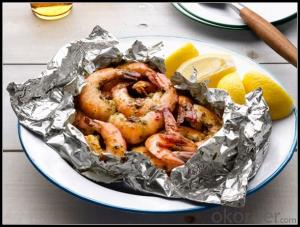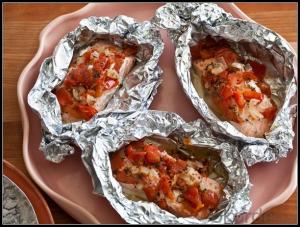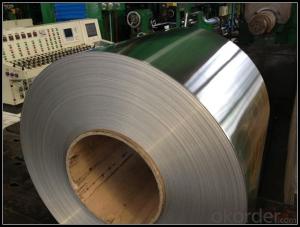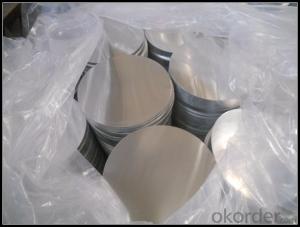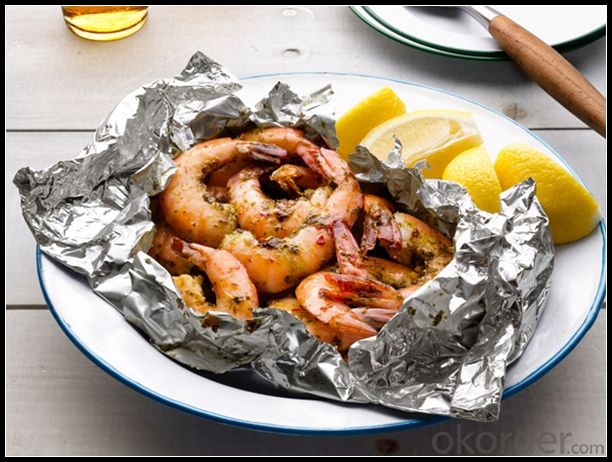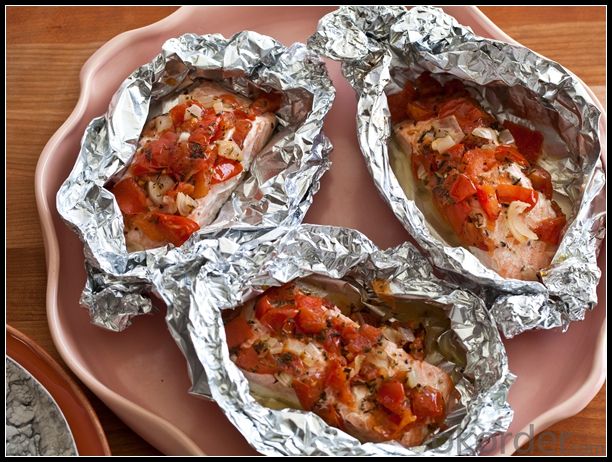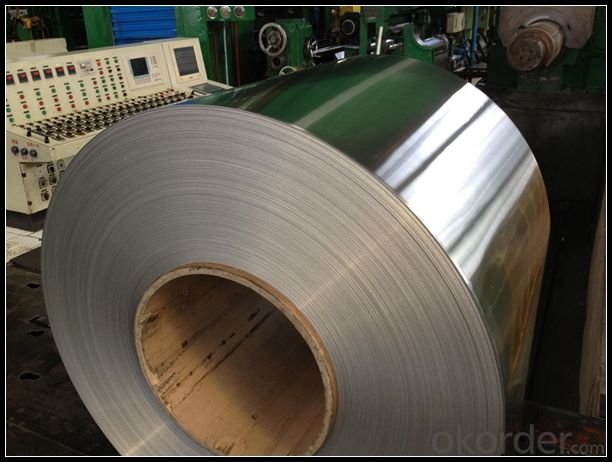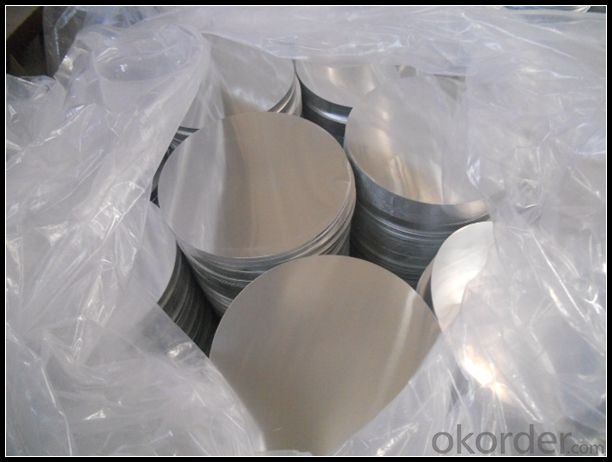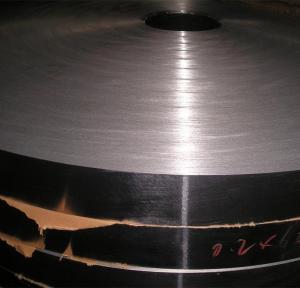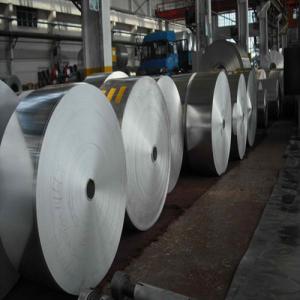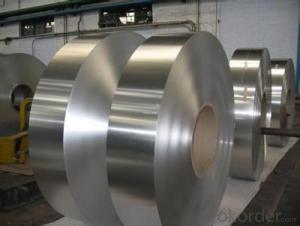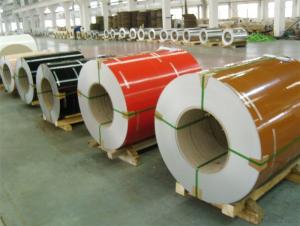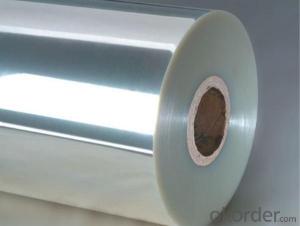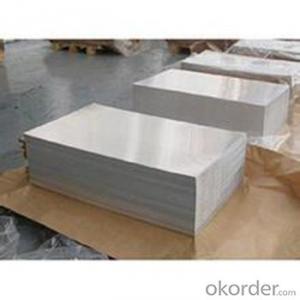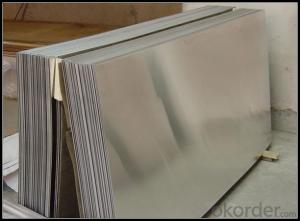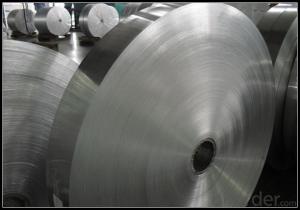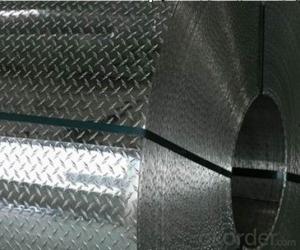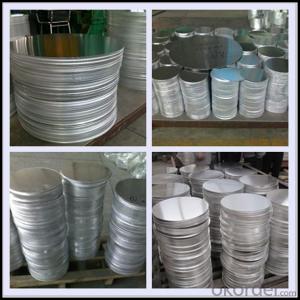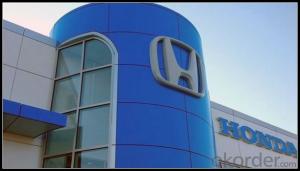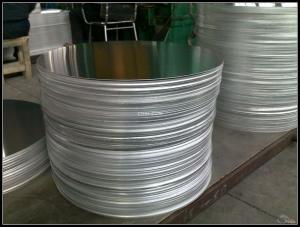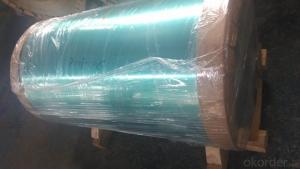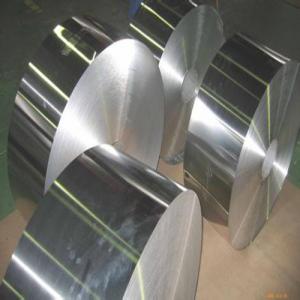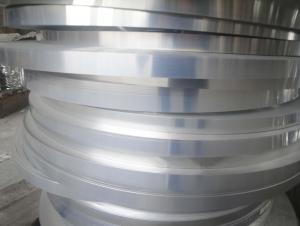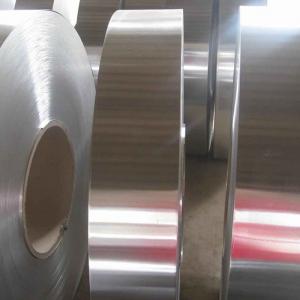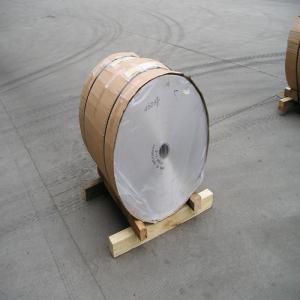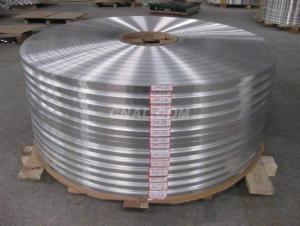3003 3004 5052 5083 6061 Thin Aluminum Strips Circle Coil
- Loading Port:
- Tianjin
- Payment Terms:
- TT OR LC
- Min Order Qty:
- 1 m.t.
- Supply Capability:
- 4999 m.t./month
OKorder Service Pledge
OKorder Financial Service
You Might Also Like
Specification
1. Specification of Aluminum
1) Alloy | 1050, 1060,1100, 3003 3004 3105 3005 5005 5052 etc |
2) Temper | O/H12/H14/H1/H18/H32/H34/H36/H38//H111/H112/H116/H321/T6/T651/T3/T351 etc |
3) Thickness | 0.1mm to 6mm |
4) Width | 20mm to 3300mm |
5) Coil weight | 100kgs to 6 tons depends on actual requirement |
6) Core material | Aluminum alloy |
7) Coil Inner diameter | 76mm, 152mm,or as required |
2. Application of Aluminum
(1).Interior: wall ..
(2).Exterior: wall cladding, facades, roofing, canopies, tunnels,column covers , renovations...
(3).Advertisement: display platforms, signboards, fascia, shop fronts...
3. Feature of Aluminum
Most acid soils are saturated with aluminium rather than hydrogen ions. The acidity of the soil is therefore a result of hydrolysis of aluminium compounds.[108]This concept of "corrected lime potential"[109] to define the degree of base saturation in soils became the basis for procedures now used in soil testinglaboratories to determine the "lime requirement"[110] of soils.
4. Certificate:
SGS and ROHS(if client request, paid by client), MTC(plant provided), Certificate of Origin(FORM A, FORM E, CO), Bureau Veritas and SGS (if client request, paid by client), CIQS certificate
5. Image of Aluminum
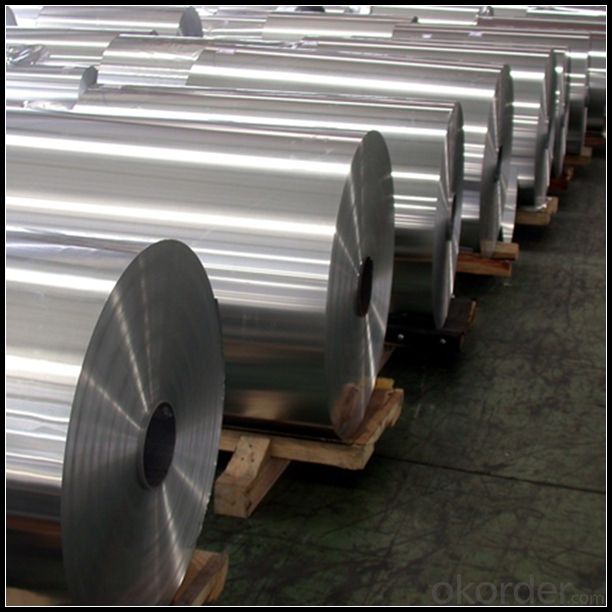
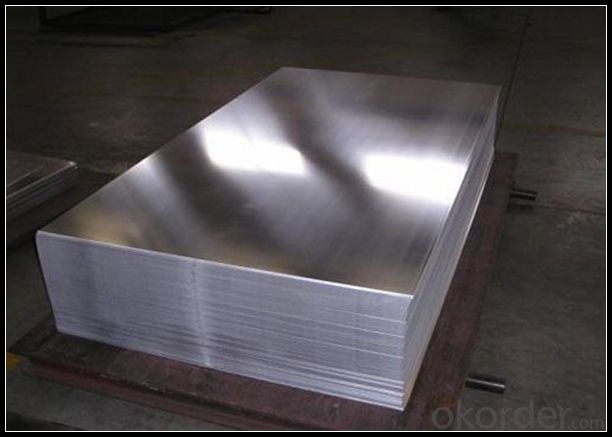
6. Our Service
1. Reply your enquiry in 24 working hours. |
2. OEM, buyer design, buyer label services provided. |
3. Exclusive and unique solution can be provide to our customer by our well traned and professional engineers and staffs. |
4. We can provide free sample for your check |
5. We have the certification of ISO 9001 |
6. Timely delivery |
7. Special discount and protection of sales area provided to our distributor. |
8. Good after-sale service. |
7. FAQ
Q: What is the produce prase? | ||||
A: Normally it would be 40days after received your deposit. | ||||
Q: Can you provide free samples? | ||||
A: Yes, free samples will be sent to you on freight at destination. | ||||
Q: Can I get your latest catalogue? | ||||
A: Yes, it will be sent to you in no time. | ||||
Q: What is the MOQ? | ||||
A: 3 tons | ||||
Q: What are your payment terms? | ||||
A: We accept L/C, D/A, D/P, T/T, West Union,etc. |
- Q: What characteristics of aluminum strips make them ideal for construction purposes?
- <p>Aluminum strips are suitable for use in construction due to several key properties. They are lightweight, which reduces the load on structures and makes them easier to handle and install. They possess high strength-to-weight ratio, ensuring durability and resistance to deformation. Aluminum strips are also corrosion-resistant, protecting against rust and other forms of decay, which is crucial for long-term structural integrity. Their excellent thermal conductivity aids in heat management, which is beneficial in both heating and cooling applications. Furthermore, aluminum strips are malleable and can be easily shaped and bent, allowing for versatile design and construction. Lastly, they are recyclable, contributing to sustainability and reducing environmental impact.</p>
- Q: This question asks for a comparison between aluminum strips and other common roofing materials, highlighting their distinct characteristics.
- <p>Aluminum strips are lightweight, corrosion-resistant, and have a long lifespan, making them ideal for roofing applications. They are also recyclable and can be easily bent and shaped. In contrast, other roofing materials like asphalt shingles are more affordable but have a shorter lifespan and are less eco-friendly. Metal roofing, similar to aluminum, is durable but can be heavier and more expensive. Clay and concrete tiles offer a traditional aesthetic but are heavy, require more maintenance, and are prone to breakage. Wood shakes and shingles are renewable but are less fire-resistant and have a shorter lifespan compared to aluminum.</p>
- Q: Are aluminum strips suitable for manufacturing automotive components?
- <p>Yes, aluminum strips are commonly used for automotive parts due to their lightweight, high strength, and corrosion resistance. They are utilized in various components such as engine parts, body panels, and suspension systems to reduce weight and improve fuel efficiency. Additionally, aluminum's recyclability makes it an environmentally friendly choice for the automotive industry.</p>
- Q: What is the relationship between the aluminum plate, the aluminum foil and the aluminum alloy strip?
- According to the domestic and SWA northeast light interpretation of this concept refers to the use of aluminum strip rolling mill for rolling plate after the coil of strip or stripe after, in a foreign country is divided into plate and sheet, a domestic sheet and plate.
- Q: Explain how aluminum strips can impact the waterproofing process and their role in construction.
- <p>Aluminum strips play a crucial role in waterproofing by serving as a barrier against water penetration. They are often used in construction to seal joints and seams where water could potentially infiltrate. These strips are durable, corrosion-resistant, and flexible, making them ideal for maintaining a watertight seal even under fluctuating temperatures and structural movements. They can be used in conjunction with other waterproofing materials such as sealants and membranes to create a robust defense against water damage. By preventing water from entering buildings or structures, aluminum strips help to protect against moisture-related issues like mold, structural decay, and deterioration, thereby enhancing the longevity and integrity of the construction.</p>
- Q: Is it possible to utilize aluminum strips as a material for insulating interior walls?
- <p>Aluminum strips are not typically used for interior wall insulation. Insulation materials are designed to provide thermal resistance, and aluminum is a good conductor of heat, which makes it unsuitable for insulation purposes. Common insulation materials include fiberglass, mineral wool, and polyurethane foam, which are effective at reducing heat transfer. Aluminum strips might be used in construction for other purposes, such as reinforcement or as a vapor barrier, but not for insulation.</p>
- Q: This question asks about the expected duration that aluminum strip siding can last on a building after it has been installed.
- <p>The lifespan of an aluminum strip siding installation can vary, but on average, it is estimated to last between 20 to 40 years. This range is influenced by factors such as the quality of materials, installation techniques, and the environmental conditions the siding is exposed to. Proper maintenance, such as regular cleaning and inspection for damage, can help extend the life of aluminum siding. However, it's important to note that with advancements in materials and coatings, some modern aluminum siding products may offer even longer lifespans.</p>
- Q: Explain the distinction between aluminum foil and aluminum strips, including their typical uses and characteristics.
- <p>Aluminum foil and aluminum strips are both made from aluminum but differ in thickness and application. Aluminum foil is very thin and flexible, typically used for food packaging, cooking, and insulation due to its light weight and barrier properties. It is often found in kitchens for wrapping food or lining baking sheets. Aluminum strips, on the other hand, are thicker and more rigid, used for structural purposes, such as in construction, automotive parts, or electrical components. They are also used in manufacturing for creating more durable and robust products. The thickness and flexibility of aluminum strips make them suitable for applications requiring strength and shape retention.</p>
- Q: This question asks for examples of uses for aluminum siding that are not commonly thought of.
- <p>Aluminum siding is traditionally associated with residential and commercial building exteriors due to its durability and low maintenance. However, its versatility extends to less common applications such as: 1) Marine applications, where it's used for boat hulls and docks due to its resistance to corrosion from saltwater. 2) Agricultural structures, like barns and silos, for protection against weather and pests. 3) In the automotive industry for car body panels and truck beds, providing lightweight and impact-resistant surfaces. 4) For creating custom art pieces and sculptures, as aluminum can be easily shaped and finished. 5) In the manufacturing of temporary structures like disaster relief shelters, offering quick assembly and durability. These uses showcase the adaptability of aluminum siding beyond its typical applications.</p>
- Q: What are the positive impacts on the environment when aluminum strips are used?
- <p>The environmental benefits of using aluminum strips include their recyclability, which reduces waste and conserves resources. Aluminum is highly recyclable, and its recycling process requires significantly less energy compared to producing new aluminum from raw materials. This leads to reduced greenhouse gas emissions and lower energy consumption. Additionally, aluminum strips are lightweight, which can decrease the carbon footprint associated with transportation. They are also corrosion-resistant, reducing the need for maintenance and replacement, and can be used in various applications, such as construction and packaging, to create more sustainable and eco-friendly products.</p>
Send your message to us
3003 3004 5052 5083 6061 Thin Aluminum Strips Circle Coil
- Loading Port:
- Tianjin
- Payment Terms:
- TT OR LC
- Min Order Qty:
- 1 m.t.
- Supply Capability:
- 4999 m.t./month
OKorder Service Pledge
OKorder Financial Service
Similar products
Hot products
Hot Searches
Related keywords
